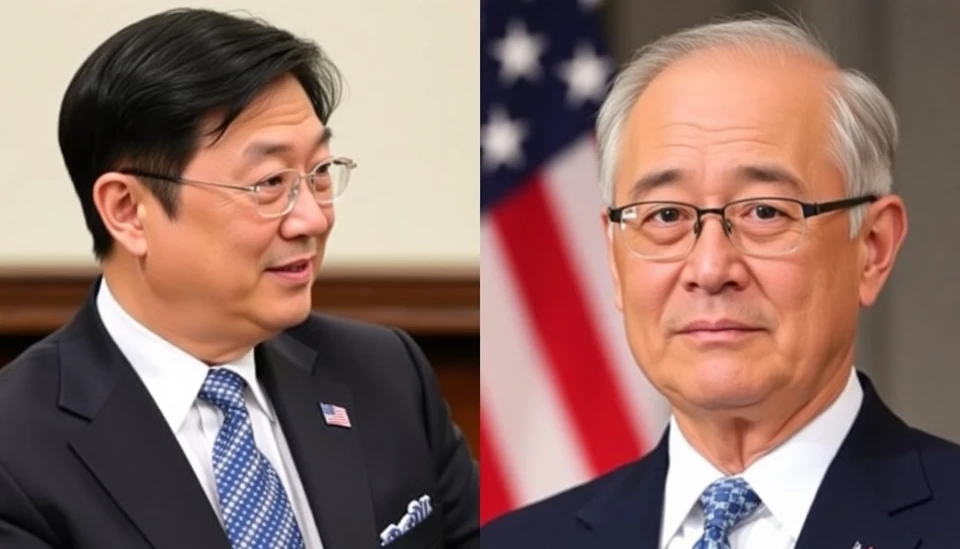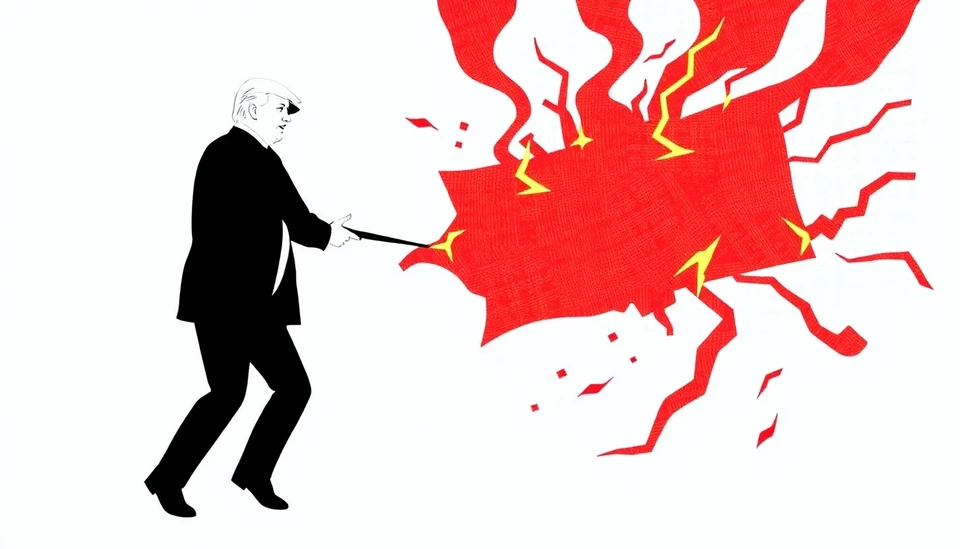
Inside the Evolving Landscape of U.S.-China Relations: Griffin Weighs In on the Trade War’s Absurdity
In a recent interview, billionaire investor Ken Griffin offered a pointed critique of the ongoing U.S.-China trade war, describing it as having devolved into a "nonsensical" situation. Griffin, who is the founder and CEO of Citadel, emphasized that the once straightforward confrontation over trade practices has spiraled into a complex conflict that lacks clear objectives or direction.
Continue reading
Concerns Emerge Over US Treasuries' Safe Haven Status, Warns Nagel
In a recent statement, the head of Germany’s largest bank, Deutsche Bank, revealed worrying insights regarding the standing of US Treasuries as a safe-haven investment in the global market. Christian Nagel highlighted potential shifts in investor perception, stressing that lingering doubts about the reliability of US government bonds could have far-reaching implications for financial stability across the globe.
Continue reading
JBS Secures SEC Green Light for New York Stock Exchange Listing
Brazil's premier meatpacking company, JBS S.A., has recently received approval from the U.S. Securities and Exchange Commission (SEC) to proceed with its plans for a public listing on the New York Stock Exchange (NYSE). This pivotal decision marks a significant milestone for the Brazilian firm, which is already recognized globally as one of the largest players in the meat industry.
Continue reading
Chipotle Expands Horizons: First Restaurant in Mexico Marks Historic Launch in Latin America
In a groundbreaking move for the popular fast-casual dining chain, Chipotle Mexican Grill has announced its inaugural expansion into the Latin American market by opening a restaurant in Mexico City. This significant event marks the brand’s first foray outside of North America and aligns with its goal to broaden its international footprint.
Continue reading
Denmark's Interest Rate Cut: A Strategic Move to Stabilize the Krone Amid ECB Pressures
In a significant monetary policy move, Denmark's central bank has decided to cut its benchmark interest rate in order to align more closely with the European Central Bank (ECB). This decision comes as the Danish krone faces downward pressure, testing its pegged currency regime. The Danish National Bank's latest actions underscore the challenges facing nations that adhere to a currency peg, particularly in the face of fluctuating economic conditions in the Eurozone.
Continue reading
Major Developments in U.S. Tariff Negotiations Led by Ishiba's Right-Hand Man
In a significant turn of events regarding international trade, the pulse of sweeping tariff negotiations with the United States is set to quicken under the guidance of Ishiba's trusted aide. As global financial landscapes shift and tensions rise, the appointment of a formidable figure in trade dialogues is being closely watched. This strategic positioning stems from ongoing discussions aimed at recalibrating existing tariffs that impact a myriad of industries.
Continue reading
German Investor Sentiment Takes a Nosedive Amid US Trade Turmoil
The latest reports indicate a significant decline in investor confidence in Germany, largely influenced by the ongoing chaos surrounding U.S. trade policies. According to new data, the outlook among German investors has dropped sharply, raising alarm bells for the economic landscape in Europe’s largest economy.
Continue reading
China Faces Record Low Growth Forecast for 2025 as UBS Downgrades Economic Outlook
In a significant blow to China’s economic prospects, UBS has issued a sharply downward revision of the country's growth forecast for 2025, marking the most pessimistic outlook to date. Analysts at the Swiss banking giant now predict that China's economy will grow by a mere 3%, a stark contrast to previous expectations and reflecting ongoing struggles within the nation's financial landscape.
Continue reading
Trump's Tariff Chaos: A Deep Dive into Unforeseen Economic Impacts
In an unexpected move that has sent shockwaves through global markets, former President Donald Trump has reactivated a series of tariffs that many thought had been largely put to rest after his administration. This decision comes as he continues to exert influence over the Republican Party and attempts to solidify his political base ahead of the 2024 Presidential Election. The reintroduction of these tariffs is raising questions about the broader economic implications, both domestically and internationally.
Continue reading
China’s Top Leaders Convene to Discuss Economic Stimulus in Wake of Trump’s Tariff Decision
In a significant move that could shape the future of China’s economy, leading officials are scheduled to gather for a high-stakes meeting aimed at formulating a response to the recent imposition of tariffs by former President Donald Trump. The extraordinary meeting, taking place amid rising tensions over trade policies, underscores Beijing's urgent need to bolster its economic stability in light of external pressures.
Continue reading